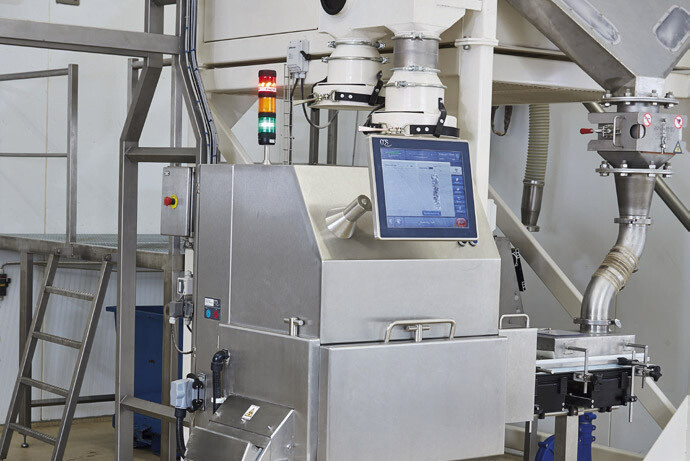Multicheck A/S (Denmark) - 40 tons a day.
An X-ray scanner’s workload at DANRICE is enormous. Up to three tons of raw goods, that’s more than 4.5 cubic metres of product, pass through the scanner on the motorised conveyor belt every hour. After the X-ray inspection, rice passes through the washing, boiling and flash freezing processes before being packed ready for transport and stored. After heating for just a few seconds in boiling water, the instant product processed in this way is ready to eat. Customers are mainly ready meal producers and also large-scale catering kitchens. DANRICE A/S supplies approx. 80% of all upstream products for ready meal producers in the EU. Regardless of the downstream quality assurance of its customers, the company also checks finished products before delivery using X-ray scanners from WIPOTEC-OCS, in addition to using metal detectors as required by the regulations. And there are good reasons for this. “We buy our products from all over the world, to a large extent from Asia. It’s not possible to rule out impurities and the same applies to rice from Europe. We therefore have to monitor all products and check them for foreign bodies irrespective of where they come from,” says Kim Kirkeby, CEO of DANRICE. “And for us it’s an additional level of security that we build in by examining all products for impurities with WIPOTEC-OCS X-ray scanners to ensure that the goods we deliver are free from foreign bodies.” After all, these are foods to which the highest quality assurance standards in the world apply. Anyone who attracts attention here is bound to make the headlines.
It all begins with tests:
X-ray scanners must undergo extensive functional tests. In these tests, it is demonstrated that the X-ray scanners comply with the specifications, the customer’s requirements and the detection rates therefore required. How do you ensure, however, that X-ray scanners are properly adjusted and furthermore, how do you guarantee that they also work correctly? Both are achieved with test specimens, in this case with stainless steel balls and glass beads with diameters of 1.0 and 2.5 millimetres respectively. The former can barely be seen in the product due to their size and the same applies to the only slightly larger glass test specimens. Non-metallic foreign bodies, such as stone and glass, pass unhindered through every metal detector, even the magnetic detectors upstream of the X-ray scanners at DANRICE. Even mechanical precleaning using vibrating screens does not present any serious obstacle to them. A scanner that is working properly detects all test specimens and reliably separates them out. The sensitivity of the WIPOTEC-OCS X-ray scanner is so high that it can detect even the smallest foreign bodies in the product. The systems are trained to detect foreign bodies, such as stone, glass, plastic or metal particles, which can pass through mechanical and other precleaning processes and must not get into the production process under any circumstances.











































Interested? Submit your enquiry using the form below:
Only available for registered users. Sign In to your account or register here.